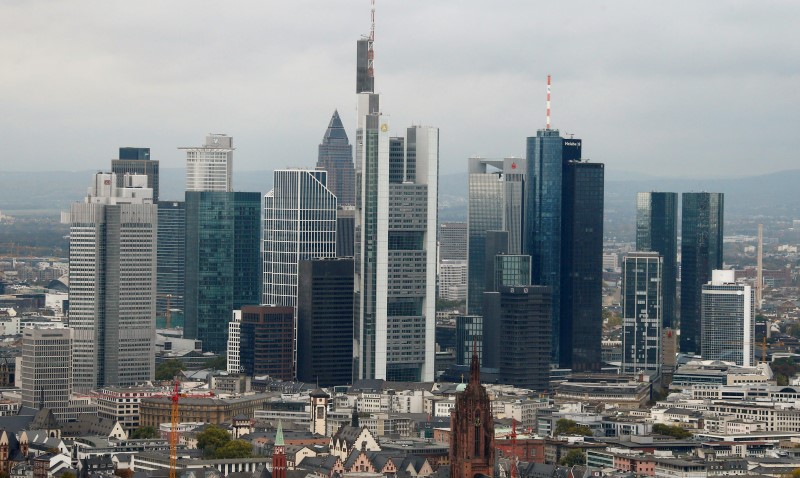By Michael Nienaber
BERLIN (Reuters) - The mood among German investors was at its strongest in 4-1/2 years in January on the back of hopes that Europe's largest economy might not be as badly bruised by trade tensions as previously thought, a survey showed on Tuesday.
The ZEW research institute said its monthly survey showed economic sentiment among investors rose to 26.7 from 10.7 in December. That was its highest reading since July 2015 and compared with the forecast for 15.0.
A separate gauge measuring investors' assessment of the economy's current conditions improved to -9.5 from -19.9 in the previous month. Analysts had forecast a reading of -13.5.
ZEW President Achim Wambach said the better mood among investors was mainly due to the recent settlement of the trade dispute between the United States and China. The conflict had dampened global growth and increased business uncertainty.
Washington and Beijing last week reached a truce in their 18-month trade war, with the initial agreement calling for China to buy more U.S. goods and services.
"This gives rise to the hope that the trade dispute's negative effects on the German economy will be less pronounced than previously thought," Wambach said.
But while Germany's economic outlook has improved, growth is still expected to remain below average, he added.
German gross domestic product growth last year slowed to 0.6%, its weakest since 2013, as export-dependent manufacturers were hit by trade disputes and less foreign demand.
Germany's BDI industry association has said there are no signs manufacturing growth is improving and it expects overall German growth to slow further this year.
There are also doubts that the trade truce reached between the United States and China will automatically benefit Germany.
Gabriel Felbermayr, president of the Kiel Institute for the World Economy, said the Phase 1 agreement will redirect global trade flows and cut demand for European goods worth nearly $11 billion, with Germany likely to be affected the most.
